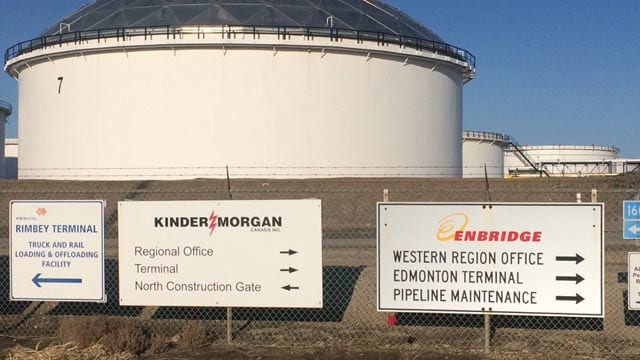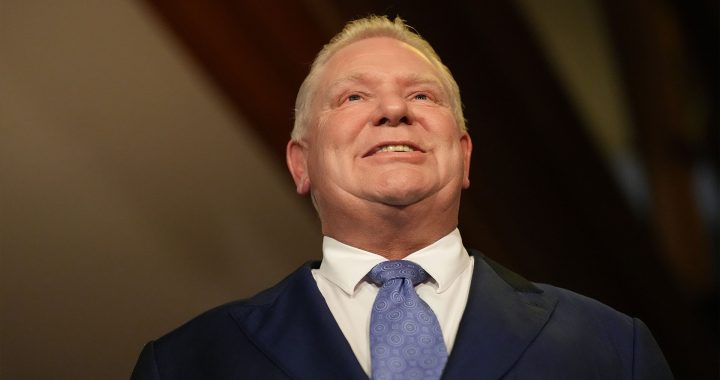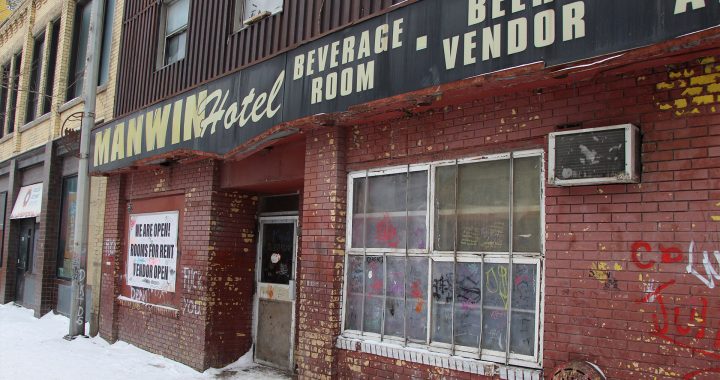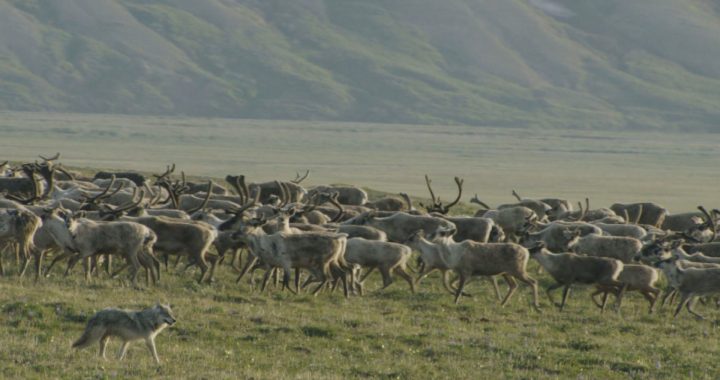On a sunny morning in Enoch Cree Nation, a steady stream of cars pull through the community’s gas station, filling up for $131.5 a litre.
“That’s awful,” says a young man, eyeing the price. “It’s only gonna get higher.”
The community west of Edmonton, near the heart of Alberta’s oil industry, is one of 43 First Nation and Metis communities that has signed a mutual benefit agreement to twin the existing Trans Mountain pipeline to Burnaby, B.C.
The project has divided Indigenous communities along the route, but this young man is indifferent – except when it comes to gas prices.
He’s not the only one with oil on the mind.
Down the road at the community’s band office, Roger Buck makes the case for Kinder Morgan’s $7.4-billion project.
“In my opinion, the pipeline has to go,” says Buck. “It’s essential – not only for Alberta but for the rest of Canada.”
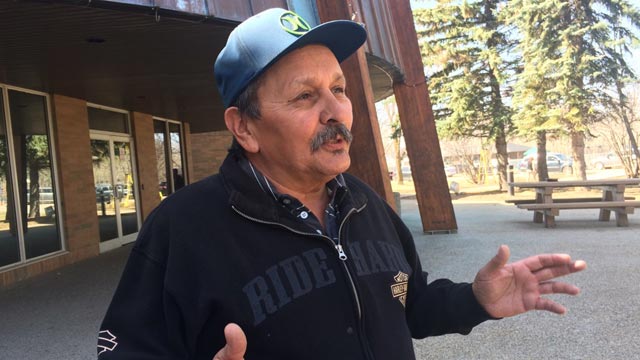
APTN drove the 1,150-kilometre pipeline route during the heat of the pipeline debate – a Prime Minister exploring every financial or legislative means to push it through, two premiers waging political war and several legal challenges against the project – all with Kinder Morgan’s May 31 deadline to come to an agreement.
But APTN wanted to meet with community members who will be directly impacted by the pipeline route.
The trip started at the gates of Kinder Morgan in Burnaby, where protesters were stationed at Camp Cloud. We documented the arrest of two faith leaders and a salmon ceremony in Cheam First Nation, where the chief prefers the proposed pipeline over rail transportation.
We’ve heard concerns about the pipeline’s potential environmental risks if it goes through – and the ongoing lack of resources if it doesn’t.
Meanwhile, our Nation to Nation show featured Yale First Nation Chief Ken Hansen who felt financially pressured to sign on with Kinder Morgan and Lower Nicola Chief Aaron Sumexheltza, who has yet to approve a final deal.
APTN’s Travelling the Pipeline drive ended at the gates of Kinder Morgan in Edmonton, where security trucks patrolled near our rolling camera.
It seems like those living in the wide-open yellow fields of Enoch Cree Nation espouse a different mentality from the anti-pipeline protesters in the coastal mountains.
“I started working in the oilfield when I was 16 years old. I’m 45 now,” says Steve Rain, while walking down one of the community’s dusty dirt roads. “That was just our way of life, running equipment. That was our job. If there was no pipeline going on, then we had no jobs, basically, that’s the way it is in Alberta.”
Some Enoch members APTN spoke with say they feel torn between environmental concerns and their reliance on the oil industry.
Emilie Jackson, who lives near the reserve, says she’s worried about potential oil spills polluting B.C.’s coast – but also worried about people losing jobs.
“I disagree with it because I don’t want the forest and the animals, everything, I don’t want none of that ruined,” she says while stopping at the Enoch gas station. “You’re also taking away jobs from transport drivers. They deliver fuel back and forth too, so that’s job losses there.”
Meanwhile, federal Environment Minister Catherine McKenna has proposed a joint B.C., Ottawa panel of scientists to enhance existing research on oil spills.
In a letter released Thursday, she says Ottawa has already taken steps to mitigate the damage in the event of a spill, including increased capacity to tow ships and five new emergency response stations, and says she is willing to address some of B.C.’s additional concerns.
Eriel Deranger, executive director of Indigenous Climate Action, says she feels “betrayed” by Alberta Premier Rachel Notley and Prime Minister Justin Trudeau, who campaigned on the rights of Indigenous people and environmental reform.
“Kinder Morgan is literally the complete opposite of all of those things,” she says while sitting in the backyard of her Kenilworth neighbourhood home in Edmonton.
“It requires the coercion and intimidation of communities to buy into this project under the auspice that these projects are going to happen, with or without them.”
While she’s not proposing anything as radical as shutting down the tar sands, she thinks the country should be shifting away from fossil fuels.
“This is a project that would lock the Alberta economy and the national economy into an oil economy past 2030 when we’re supposed to be taking aggressive action on our climate,” she says.
“It’s a project that not only threatens climate stabilization and us meeting our targets, but it undermines and diminishes the rights of Indigenous communities.”
– with files from The Canadian Press



